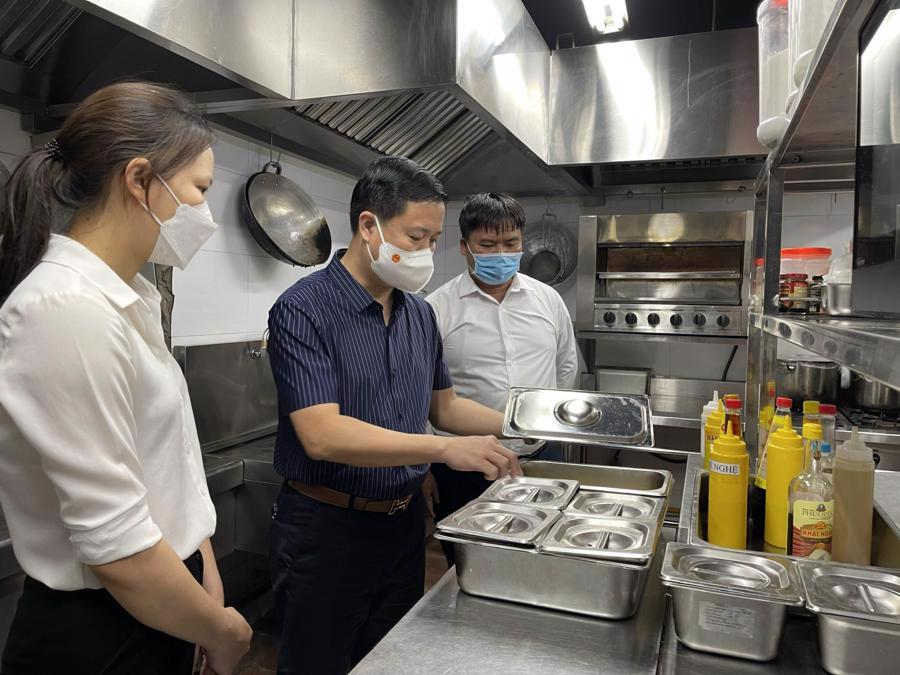Hanoi tightens food safety management after Tet
Local authorities will take strong measures to ensure food safety in the kitchens of industrial parks, schools, and government agencies.
Hanoi is strengthening the food safety management of organizations throughout the city.
| Hanoi authorities inspect a local restaurant for food safety management. Photo: The Hanoi Times |
Local authorities will strengthen supervision of collective kitchens in industrial parks, government agencies, and schools to ensure food safety standards are met, said Hanoi Food Safety Sub-department chief Dang Thanh Phong.
“Students, particularly kindergarten and elementary kids, are the most vulnerable and their meals need special attention,” he said.
"Twenty schools across the city have agreed to join a municipal program to meet all food safety standards and improve their monitoring of food qualities," Phong said.
Food safety control is among the hardest tasks in a densely populated city.
In particular times like Tet and post-Tet period, Hanoi endures heavy pressure to maintain food safety standards as people return to their normal life, students come back to schools, and cultural festivals open to the public.
The public worry about the quality of food as Hanoi-based organizations, companies, and schools reopen after Tet resulting in thriving catering businesses whose food safety needs stricter control, Dang Thanh Phong said.
The capital has inspected local producers and vendors to ensure food safety during the New Year and spring holidays in 2023, focusing on the most consumed foods in the market, and food safety management in schools, industrial parks, hotels, restaurants, grocery stores, and slaughterhouses, Phong added.
In January 2023, Hanoi authorities checked more than 5,000 facilities of all types and detected 520 cases of food safety violations. The authorities also fined nearly 300 facilities more than VND1.3 billion (US$55,437).
However, there are some obstacles that have hindered food safety control, Phong said.
Complicated and overlapping regulations set out in the Food Safety Law have made it difficult for food producers and sellers to seek certification for their products, he said.
In addition, the incomplete regulatory framework has also troubled local authorities in carrying out their duties, Phong said.
Most producers and sellers are unaware of the necessary requirements for their operations, said the food safety management officer.
"Their products are manufactured and sold through a wide network of distributors without any kind of certification," he said.
"In particular, many facilities are unaware of public health concerns and often adopt unethical production measures," Phong added.
In addition, individual slaughterhouses continue to exist in the city, causing environmental pollution and aggravating the risks of food poisoning, while market demand is rising strongly, he said.











